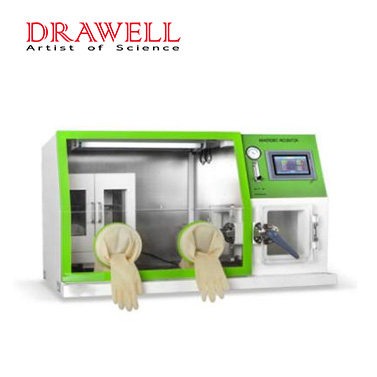In the ever-evolving landscape of research, technology, and healthcare, numerous instruments and technologies have emerged to drive progress and tackle complex challenges. Among these remarkable innovations, incubators stand out as versatile machines with a myriad of applications. In this article, we delve into the diverse uses of incubators across industries such as healthcare, scientific research, agriculture, entrepreneurship, and environmental sciences, highlighting their transformative impact on various facets of our lives.

Incubators in the Medical Industry:
Incubators play a crucial role in healthcare, particularly in neonatal care units. These medical marvels provide a regulated environment for the care and development of preterm or critically ill newborns. By creating a warm, stable, and sanitary environment that controls temperature, humidity, and oxygen levels, medical incubators ensure optimal conditions for infant well-being and growth. Equipped with monitoring devices, medical incubators enable healthcare personnel to closely monitor vital signs and respond promptly to abnormalities, thereby increasing the chances of survival for vulnerable infants.
Laboratory Incubators:
In scientific research, laboratory incubators serve as nurturing environments for various live organisms. These devices provide controlled conditions of temperature, humidity, and nutrient availability to support the growth and reproduction of cells, bacteria, fungi, and other microorganisms. Laboratory incubators facilitate the investigation of biological processes, experimentation, and drug development by replicating natural settings. They play a vital role in advancing fields such as medicine, biotechnology, and microbiology, contributing to breakthroughs in cellular activity research and genetic engineering techniques.
Incubators in Agriculture and Animal Husbandry:
Egg incubators are indispensable in agriculture and animal husbandry, facilitating the hatching and rearing of various species. By mimicking ideal conditions for egg development, including temperature, humidity, and ventilation, these incubators significantly increase the chances of successful hatching and higher survival rates. Used by poultry farmers, reptile breeders, and bird enthusiasts, egg incubators ensure the continuity and sustainability of species. Additionally, specialized egg incubators can manipulate parameters such as temperature and humidity to modify the gender ratio of certain reptiles, aiding conservation efforts.

Entrepreneurship and Business Incubators:
Beyond healthcare and scientific research, the concept of incubators has found its place in the entrepreneurial and business landscape. Startup incubators support early-stage businesses by providing essential tools, mentorship, office space, and networking opportunities. By nurturing entrepreneurial talent and fostering creativity, startup incubators play a critical role in driving economic growth and transforming innovative ideas into successful enterprises. They provide invaluable assistance to budding entrepreneurs in navigating the challenges of business development.
Environmental Incubators:
Environmental incubators are specialized equipment used in ecological research and testing. These devices allow scientists to create controlled environments that mimic specific ecosystems or microhabitats, facilitating the study of environmental variables' impact on organisms and their interactions. Environmental incubators contribute to understanding climate change, biodiversity trends, plant development dynamics, and the effects of pollutants on living organisms. Such research informs conservation efforts, ecosystem management, and the development of sustainable practices.
In Conclusion:
Incubators are versatile tools with boundless potential, providing controlled settings for a wide range of applications. From nurturing premature infants to driving scientific discoveries, from fostering agricultural growth to supporting entrepreneurship and environmental research, incubators have transformed numerous disciplines. As technology advances, incubators will continue to push the boundaries of innovation, opening new avenues and providing crucial support in our pursuit of growth and understanding. With each application, incubators showcase their revolutionary capabilities and solidify their position as indispensable assets in shaping a better future for humanity.